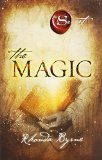I have found Pollyanna
I discovered this film thanks to the book by Rhonda Byrne “The Magic”. Pollyanna grew up believing that in every occurrence there is always something good. This is thanks to her father who advised her as a child to play the “game of happiness”: a mental exercise to find something positive even in bad experiences.
Quoting from the book:
“The game is to find the greatest number of things to cheer you up, especially if you’re going through a difficult situation. When you’re in rough waters, the search for what determines our joy or gratitude facilitates the appearance of the solution to the problem“.
The two scenes proposed are just some of the moments in which Pollyanna tries to convince arguing adults of the need to exercise gratitude. In the first scene, the orphan tries to lift the morale of her aunt who is very ill and tells her the story of when, instead of a doll, she received a pair of crutches.
Miss Polly: How can someone ever be glad of crutches?
Nancy: Simple! In Pollyanna’s case, she could be glad she didn’t need to use them.
During my classes, I sometimes tell of how the Marines conclude their training. They run from one side of a beam to another, that is seven metres long and 30 centimetres wide. The beam is placed on the ground and none of the soldiers ever fall. When the same beam is raised on two poles that are about 3 metres high, more than 50% of them loses their balance. How is that so? What has changed? Nothing.
The beam remains 7 metres long and 30 centimetres wide. What changes is the mental “focus”: the first time around, they were focused on what was firmly on the ground. The second time, they concentrate on what is missing, the void. It is the void that brings on fear.
The same is to be said of us, when we focus on what “we haven’t got” and what is “missing”, and inevitably we come out weakened, it is a zero-sum game where every negative remark reinforces the other, attracting only frustration and despair.
“Pollyanna” is a Walt Disney film produced more than half a century ago, which should be repeated in our day and age, when we concentrate on what is going wrong in our communities. I still remember when my swimming instructor, wanting to help me flow better in the water, used to say to me: “the body goes where your eyes go“. At that time, I practiced backstroke, so I tried to look down and see my toes, but I found myself sinking and I found it hard get back up.
Similarly, our life goes in the direction of our gaze. What are we looking at now? Have we forgotten that we choose to turn the TV on or not, or that it is us that give weight and meaning to things?
Rhonda Byrne’s book “The Magic” was written to carry a single message: gratitude is magical. It ‘a message that we have forgotten but that our grandparents knew well, so much so that they gave thanks for the little things too. I have carefully followed the exercises in this book and I can tell you that I was surprised by the results. The same author argues that there is nothing new in what she says, as thousands of years ago it was already written in the Matthew’s Gospel:
“To everyone who has, more will be given, and he shall have abundance. To he who hath not shall be taken away even what he hath“.
In our conversations, that are often superficial, we wonder how the poor become even poorer, and why the wealthy, in turn, become richer. We should rather be asking who is grateful and who is less grateful of what they have, because the only way to increase our well-being is to keep up the eyes on the many riches that we already have, but too often forgotten.
Byrne argues that the quote should be end like this:
“To he who has gratitude for what he has will be given more, and he will have abundance. He who has no gratitude for what he has will have that taken away“. I believe in this, for this reason someone who constantly speaks of illness is ill, and those who speak of poverty are poor and those who speak of violence sees it and feels it everywhere.
If there’s one thing that can make us feel good, it is to think that by continuing to give thanks for what we have, large or small treasures that they are, things in our lives can only improve.
“… and in case I don’t see ya…
good afternoon, good evening and good night!”…
(The Truman Show)
Virginio
Share with gratitude


